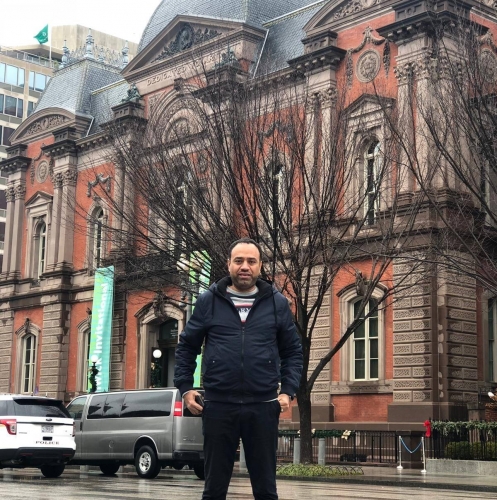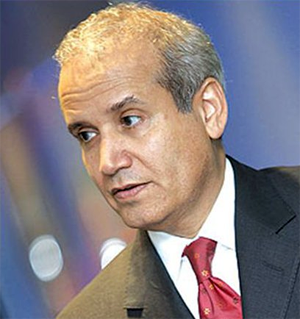The Russian men fleeing mobilization, and leaving everything behind
More than 180,000 Russians have fled just to three neighboring countries, with the full tally likely much higher
ISTANBUL — To escape fighting in Ukraine, the 42-year-old Russian construction worker flew through two countries in four days, spending so much on tickets, so quickly, he lost track of it all. Finally, he ended up in Turkey, where it was safe. As he stopped to breathe Tuesday, on plastic seats in the airport arrival hall, he conceded he had no idea where to go next.
But maybe it didn’t matter. “The main task is to save your life,” he said, as he picked at peanuts from a plastic dish. The avalanche of men fleeing Russia “don’t know what to do next,” he said.
President Vladimir Putin’s announcement last week of a “partial” military mobilization of Russian reservists for his war in Ukraine set off a frenzied dash for the country’s borders by tens of thousands of men affected by the order — but also many who simply assumed that their government, desperate for troops, would conscript any man who could carry a gun.
The mobilization is a risky and unpopular decision, bringing home the grim reality of the war to many Russians who were previously apathetic supporters of the invasion, or quiet opponents. Putin, normally cautious about stirring dissent, promised in March not to mobilize Russians to fight. But after major setbacks in Ukraine, including the humiliating Russian retreat in the Kharkiv region, he has broken that promise.
The emerging scale of the exodus — more than 180,000 Russians have fled just to three neighboring countries, with the full tally likely much higher — has raised questions about the Kremlin’s ability to sustain its war effort. As more Russians cross the border, escaping the restrictions imposed by Putin’s government, they are providing a glimpse of alienation and unease spreading back home.
Many have fled to Kazakhstan, according to the country’s Interior Ministry, which said nearly 100,000 Russians had entered the country since Putin announced the call-up on Sept. 21. At least 10,000 have crossed into Georgia each day — double the amount before the mobilization, according to authorities there.
And thousands have flown to Turkey, always a popular tourist destination for Russians and now a hub for its exiles, who have arrived on packed commercial flights over the past week and even on chartered planes, with some paying thousands of dollars to secure a seat, according to passengers.
The construction worker, who like others interviewed spoke on the condition of anonymity out of concern for family members still in Russia, took the long way out. He flew from the Russian city of Sochi to Tajikistan on Sept. 23, and then to Uzbekistan. Early Tuesday morning, he flew to Istanbul, from where he was planning on traveling on to the southern Turkish resort city of Antalya, long a favorite among Russian visitors.
Back home, he had not waited to receive a letter summoning him for military service. And, in any case, his complaints ran deeper than the mobilization.
“I do not support my government, but I cannot do anything to change the situation. If you have another view from them and if you protest or write about this, you go to jail,” he said.
Like other men who had fled, he fretted for family members left behind. His mother, he said, “is nervous and stressed for me.” His visa in Turkey only allows him to stay for two months, but that was a problem for later.
A 32-year-old man who arrived in Istanbul on Tuesday said he left behind his wife and 1-year-old son. “Of course it was a very difficult decision,” said the man, an ethnic Ukrainian who said he was born and has lived his entire life in Russia.
The government, he said, was enlisting men “en masse.” Neighbors and friends had been called up. “I had no choice. I can’t go to war and kill people in Ukraine. And if I stayed, there was no other option.” He and his wife decided he should leave on the day Putin announced the mobilization.
“In one day, I quit my job, took the money from the bank, took my wife and the baby to my parents. My entire life is breaking apart,” he said.
For most of the Russians traveling to Kazakhstan, the first stop is the Kazakh city of Oral, 160 miles south of Samara, the nearest Russian city with an airport. Lukpan Akhmedyarov, a local investigative journalist, said he took a Russian woman and her 19-year-old son into his apartment, with hotels and rental apartments fully booked.
The city is full of thousands of young Russian men of military age wandering around with their cellphones in their hands, dragging or carrying their bags, he said. “They all look very confused and lost. They look like a person who did something very unexpected for himself and he doesn’t know what to do next. They don’t look happy. And they are very, very quiet.”
Volunteers have set up a welcome tent near the central railway station, he said, offering newly arrived Russians free SIM cards, meals, water and hot drinks. Several local cafes, now open all night, allow Russians to stay if they have nowhere else to go.
The movie theater in town did the same, and 200 people are sleeping there each night, Akhmedyarov said. Others are sleeping at the local mosque, he added.
Many of the new arrivals had to spend three days in a queue of cars on the border, compared with just a few hours on the first two days after the mobilization was announced. Kazakh President Kassym-Jomart Tokayev said Tuesday that his country would welcome Russians on the run, calling their situation “hopeless” and saying they were “forced to leave.”
“This is a political and humanitarian issue,” he said.
Some Russians who fled after the mobilization announcement said they considered leaving earlier but decided to save up first, hoping the situation might improve. Others simply delayed a decision that would result in an indefinite separation from family and home.
A 33-year-old filmmaker said he and his wife had actually decided to get out before the war, as Russia’s economy worsened and the threat of conflict loomed. After Russia invaded Ukraine, their conviction hardened: The wife’s relatives lived near Kyiv, under Russian bombardment, and the couple recoiled at Moscow’s propaganda about routing what it called “Nazis” from Ukraine, he said.
In the spring, the couple started the process of applying to travel to the United States on a talent visa for artists, but still hoped they could take their time leaving Moscow, he said.
Then the mobilization announcement came. The filmmaker was not among those slated to be called up, but “we understood they will take everyone who they can catch,” he said, referring to the government.
“We understood, me and all my guy friends, this is it, the moment. If you hoped to save your business or career in Russia, it’s all gone. Now you have to think about your life.”
His mother sent him a text message on Sept. 21, he said. “You have to go now,” she wrote. “You can’t wait.”
He and his wife discussed what to do for about half an hour, and then he started trying to book his ticket out of Russia. “It was a legendary process,” he said. “You enter the dates, you choose where to go, you push the button to buy and you can’t. At this moment another 20 people are trying to buy the same ticket.” He finally found a seat on Monday and flew to Istanbul.
“I am not sad at this moment,” he said. “Maybe I have some feelings — not for the country, for some places, for some people. For my family, for my grandparents — I will not see them again. I am not sad about the country. Now the country is in a horrible condition.”
On the day of the mobilization announcement, Sergei, a 26-year-old technician from Moscow, threw his passport and essential clothes into a bag, borrowed money from friends, bought a plane ticket and headed straight to the Moscow airport. He was on one of the first flights out.
“I was in complete shock,” he said, speaking in a telephone interview from the Georgian capital of Tbilisi, where he was searching for work.
“Of course I knew our government is unpredictable, but I hoped that mobilization would not happen. I had a feeling of sadness and confusion. I was at a loss. Now I hope that none of my friends who are still in Russia will be drafted. I’m really scared for them,” he said.
Although he left behind his parents, grandmother and family pets, he has no plans to return, and is trying to decide where he may eventually settle.
“The problem is that an old, weird generation is at the top in our country,” he said. “They think differently from us and we can’t do anything about them. We went to protest, but nothing happened, and now people are very afraid.”
Few of the men who are fleeing Russia now will ever go back, he predicted, and the exodus would affect the country for years to come.
“Of course, the best people are leaving,” he said.





